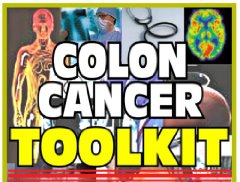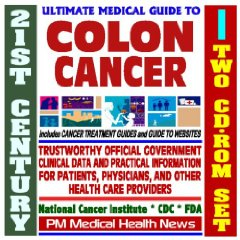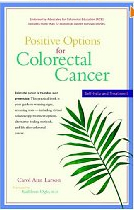Colon Cancer / Colorectal Cancer
Information, Research, Causes, Symptoms and Treatment
Critical Medical Notice
This information is for educational purposes only and should never replace professional medical care. Cancer is a serious medical condition requiring immediate qualified medical supervision. The information below provides a general overview and may not apply to everyone. Any treatment protocol should be discussed with a qualified healthcare practitioner. Please refer to: Medical & Legal Disclaimer.
Understanding Colorectal Cancer: Key Facts
📊 By the Numbers (2003 Data)
- • 151,500 cases and 57,000 deaths reported
- • Third most common cancer in the United States
- • About 75% of cases develop after age 45
- • In most cases, cancer arises from a polyp (abnormal tissue mass)
⚠️ Risk Factors
- • Gallbladder removal (risk increases within 10 years)
- • Secondary bile salts accumulation
- • Chronic colitis
📅 Timeline
Takes about 10 years for a polyp to develop into cancer. Early cancer usually does not cause pain.
Recognizing the Signs: Early & Advanced Symptoms
🔍 Early & Unforeseen Symptoms
👄 Oral Signs
Cyst on frenula - A growth or lump on the thin tissue connecting upper gum to upper lip signals a colon problem.
💅 Nail Changes
White half moons (lunulae) - Typically only thumbs have them. If you had them before and they disappear, this signals cancer risk. May also feel cold.
👶 Facial Hair
Soft, light-colored hair on cheeks in adults may signal colorectal or lung cancer. (Normal in infants, fades with age)
🩸 Early Bleeding
Dark lines on nails are early signs of bleeding. Blood in stool indicates cancer has progressed to stage 3.
🏥 National Cancer Institute Symptoms
- • Change in bowel habits: Diarrhea or constipation
- • Gas pains, cramps or feeling full or bloated
- • Feeling very tired all the time
- • Losing weight for no reason
- • Nausea or vomiting
Important: These symptoms don't necessarily indicate cancer. Early cancer usually does not cause pain.



Evidence-Based Nutritional Therapies
💊 Key Vitamins & Research
☀️ Vitamin D
UCSD Research: 4000-8000 IU daily reduces disease risk by half. High blood levels = 70% less likely to develop colon cancer.
More vitamin D research🌟 Vitamin E
2002 study: 750mg daily for 2 weeks improved immune function in colon cancer patients. 22% average increase in T cells producing interleukin 2.
Read full study details🍊 Vitamin C
May help chemo and radiation kill cancer cells while protecting healthy cells. Dosage: At least 1g daily with meals.
Vitamin C benefits
🥗 Cancer-Fighting Foods
🌾 Fiber (Bran)
Harvard study: Men eating 28g+ fiber daily had 1/3 the polyp rate of those eating 17g daily. Protective dose = 1 cup high-fiber cereal.
🐟 Fatty Fish
Fish oil suppressed precancerous colonic cell growth by 62% in just 2 weeks. Equivalent to 8 oz mackerel daily.
🍎 Apples & Juice
Apple pectin and polyphenols enhance anticarcinogenic compounds during fermentation. Increases butyrate production, slowing tumor cell growth.
🥬 Cruciferous Vegetables
University of Utah study: Men eating most crucifers had 70% lower colon cancer risk. Include cabbage, broccoli, Brussels sprouts, cauliflower.
🥛 Calcium
Men drinking milk daily over 20 years were 1/3 as prone to colon cancer. 1,200-1,400mg daily might prevent 65-75% of colon cancers.
🏃♀️ Exercise Link
Physical activity = 30-40% lower risk. Sedentary lifestyle accounts for 14% of US colon cancer cases. Walking 2-3 hours weekly helps.
🍃 Comprehensive Cancer Nutrition
🥬 Fresh, Organic Fruits & Vegetables
Concentrate on anticancer cruciferous veggies like broccoli, cauliflower and cabbage, plus high-antioxidant berries. Just 4 servings of cruciferous vegetables weekly slashed the risk of dying from ANY medical cause by 26%!
Organic foods guide: most/least contaminated items🌿 Herbs & Spices
- • Turmeric: #1 anticancer spice, potent antioxidant. Add 1/4 tsp at end of cooking
- • Ginger: Contains 6-gingerol and 6-paradol (cancer-inhibiting compounds)
- • Green Tea: Powerful antioxidants, anti-inflammatory
🌾 Grains & Legumes
- • Whole grains: Rich in antioxidants, vitamins, fiber, lignans
- • Rye: Rich source of lignans, protects against hormone-dependent cancers
- • Beans: High fiber, lowers cholesterol, linked to lower cancer rates

📚 Raw Food: Max Gerson, M.D.
Dr. Gerson used a mostly raw food and fresh vegetable juice diet for cancer patients with remarkably good results. His entire program is detailed in "The Gerson Therapy" by Charlotte Gerson and Morton Walker (2001).
🌊 Sea Vegetables
- • Wakame: High iodine, may be more effective than many chemotherapy drugs
- • Spirulina: Strong anti-cancer properties, supercharges immune system, HIV-active sulfolipids
🍎 Additional Foods
- • Apples: Cancer-fighting triterpenoids in peel
- • Nuts: Anti-cancer and heart-protective
- • Aloe vera: Anti-cancer, anti-inflammatory
- • Garlic: National Cancer Institute researching anti-tumor properties
- • Flaxseed & Cod Liver Oil
💊 Evidence-Based Supplements
🔸 Beta-Carotene
May decrease treatment side effects and improve survival. Dosage: 20-30mg daily with meals, or eat colorful fruits and vegetables.
⚡ Coenzyme Q10
Essential for energy production in cells, may help contain or inhibit tumor growth.
🥬 Folate
Postmenopausal women eating folate-rich foods (leafy greens, legumes) have lower breast cancer risk.
🔬 Selenium
200 micrograms daily cut cancer death rate in half in large clinical study. Available at pharmacies for ~10 cents/day.
Published in Journal of American Medical Association
🧬 Vitamin B17 (Laetrile)
G. Edward Griffin's research suggests cancer is a deficiency disease. B17 (Laetrile in purified form) may be the missing essential food compound.
🔸 Additional Supplements
Calcium, Vitamin D, Vitamin B12, Folate, and Lycopene.
💊 Chemotherapy
Information about chemotherapy treatments and nutritional support.
🔬 Selenium Research
How selenium cuts cancer death rate in half - the research details.
🧬 Vitamin B17 Story
Could it be that easy to cure cancer? The controversial research.